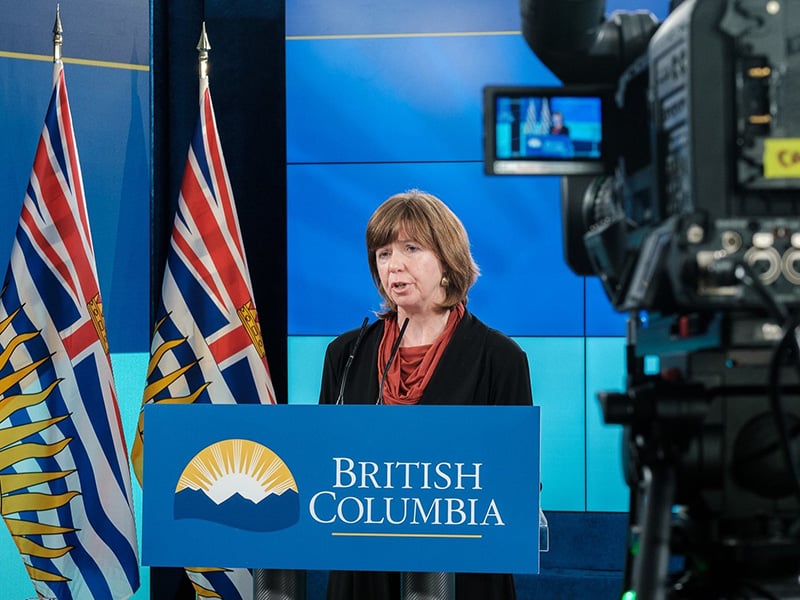Nearly 500 people in British Columbia have died of poisoned drugs in the first three months of 2021 alone, signalling no slow in fatalities on the heels of the province’s most fatal year on record.
March saw 158 lives lost across the province, 40 per cent more than the same month last year, for a total of at least 498 deaths. Last year, at least 1,723 people died of poisoned drugs.
That’s about five people dying of drug overdoses per day, as the province approached five years since the overdose crisis was declared a public health emergency.
In a statement similar to remarks made in previous months — save for the updated numbers and date — Minister of Mental Health and Addictions Sheila Malcolmson said “the effects of two public health emergencies have taken an immense toll.”
“People and communities are hurting, and we will do more to stop this terrible surge of overdose deaths,” she said.
Poisoned drugs are now the fifth-leading cause of deaths in B.C. — just behind cancer, stroke, heart disease and diabetes, and above COVID-19, according to modelling presented earlier this month.
And the rate of deaths this year is at its greatest since data recording began with 38 people dying per 100,000 in the population. In 2020, the rate was 33.5 people per 100,000.
Vancouver Coastal and Fraser Health regions continue to see the highest total deaths with 137 and 171 so far this year respectively.
But northern B.C. is bearing the highest per-capita toll at 56.7 deaths per 100,000 and 41 deaths this year.
On the five-year anniversary of the province’s first and longest public health emergency earlier this month, Malcolmson announced B.C. would formally seek permission from Ottawa to decriminalize drugs for personal use.
Vancouver is currently finalizing its application for citywide decriminalization, but there is no timeline on when the province will make its initial submission.
"Stigma and criminalization are driving people to use alone, and the pandemic is pushing people further into isolation,” said Malcolmson on Thursday. “The illicit drug supply has become dramatically more toxic and, tragically, more lethal.”
Carfentanil, an extremely potent illicit opioid, has been present in at least 48 deaths so far in 2021, nearly three-quarters of the 65 total deaths it contributed to in 2020.
The powerful illicit opioid fentanyl was present in 84 per cent of deaths in 2021, compared to five per cent in 2012.
Experts in drug policy and substance use have long said safe supply is the only intervention that can prevent deaths immediately.
Safe supply strategies aim to prevent poisoned drug deaths by providing pharmaceutical grade substances and alternatives with predictable and measurable doses, in order to separate people from the increasingly toxic illicit drug supply.
“Five people are going to die tonight, somewhere,” executive director of the Canadian Drug Policy Coalition Donald MacPherson told The Tyee earlier this month. Robust and accessible safe supply is “the one thing that can impact people tonight, and that’s what matters.”
But it has been nearly seven months without new details on a promised expansion to safe supply by the province just days before the election was called in September 2020.
And the April 20 budget, which earmarked $500 million over the next three years for mental health and substance use services, was silent on funding for safe supply.
Instead, nearly 200 new treatment beds will be publicly funded with $133 million in the next three years. An additional $152 million will be spent on ongoing opioid use disorder treatment initiatives, and $45 million will go to new harm reduction services like supervised consumption sites announced in early April.
Treatment and recovery services are important, Moms Stop the Harm co-founder Leslie McBain said in an interview, but safe supply is needed in the short-term to keep people alive.
“We hope it’s not just pilot projects anymore around safe supply, we need a sustained safe supply program still,” said McBain. “It always comes down to stopping the deaths.” ![]()
Read more: Health, Rights + Justice, BC Politics
















Tyee Commenting Guidelines
Comments that violate guidelines risk being deleted, and violations may result in a temporary or permanent user ban. Maintain the spirit of good conversation to stay in the discussion.
*Please note The Tyee is not a forum for spreading misinformation about COVID-19, denying its existence or minimizing its risk to public health.
Do:
Do not: